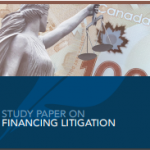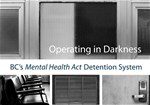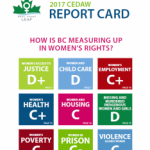Have your say on governance issues for strata corporations
by Kevin Zakreski, staff lawyer, BCLI
The British Columbia Law Institute (BCLI) is asking you for your views on proposals to change the law governing B.C.’s strata corporations. With its Consultation Paper on Governance Issues for Stratas, BCLI has made 83 tentative recommendations to reform the Strata Property Act, the Strata Property Regulation, and the standard bylaws applicable to strata corporations. You can comment on these tentative recommendations until 15 June 2018.
About strata-corporation governance
Governance is the method or system of an organization’s management. Good governance helps an organization to make timely, effective, and enforceable decisions. Laws on governance are intended to foster these goals.
The popular conception of decision-making in property law emphasizes the sovereignty of individual owners. It’s reflected in the saying, “my home, my castle.” This does not work for strata properties. Giving every owner a veto over every decision would make it next to impossible for the collective to manage common property and to ensure harmonious living.
So strata governance has been based on the corporate model. It provides for majority rule on most decisions, with some important, far-reaching decisions calling for greater-than-majority support.
The consultation paper doesn’t take issue with this basic premise of strata governance. But it does propose a significant level of fine-tuning in selected areas, to improve the operation of the law.
An overview of the consultation paper’s tentative recommendations
Highlights from the paper’s proposals include:
- relocating 11 bylaws (or parts of a bylaw) from the Schedule of Standard Bylaws to the body of the Strata Property Act, to give stratas certainty that those provisions can’t be amended;
- establishing a defined form of proxy appointment for strata-corporation general meetings, to clarify the relationship between the proxy and the person appointing the proxy and help to stamp out abuses of the proxy system;
- establishing statutory qualifications for strata-council members, modelled on the qualifications for directors found in the Societies Act, which will set the minimum standards for serving on a strata council;
- clarifying the order of agenda items for strata-corporation general meetings, to allow for better meeting procedure; and
- creating a special four-year limitation period for claims that may be subject to the strata corporation’s lien under section 116 of the act, which will help stratas in enforcing their claims.
The consultation paper also considered, but declined to endorse, the following proposals:
- extending the strata corporation’s lien to cover fines and charge backs;
- limiting the number of proxy appointments for a general meeting that one person may hold.
How to have your say
Copies of the consultation paper are available for download at the BCLI website. Also on the BCLI website are links to interactive surveys maintained by BCLI and a response booklet, which may be completed and sent to <strata@bcli.org>. Finally, for those who prefer a more focussed experience, a summary consultation paper featuring three highlighted proposals is also available for download.
About the Strata Property Law Project—Phase Two
Since 2013, BCLI has been at work on the Strata Property Law Project—Phase Two. The goal of the project is to recommend changes to the law necessary to support the next generation of strata-property legislation in British Columbia.
In carrying out the project, BCLI has the benefit of assistance from an expert project committee, with 13 leaders drawn from the ranks of the legal, notarial, real-estate, and strata-management professions, public officials, and owners’ organizations.
The project is supported by nine funding organizations.




 Financing Litigation Legal Research Project
Financing Litigation Legal Research Project Mental health detentions in BC have increased dramatically over the last ten years. This report reveals several disturbing practices and points to a number of deep flaws in the BC Mental Health Act that do not comply with the rights guaranteed by the Charter and international human rights law.
Mental health detentions in BC have increased dramatically over the last ten years. This report reveals several disturbing practices and points to a number of deep flaws in the BC Mental Health Act that do not comply with the rights guaranteed by the Charter and international human rights law.
 Navigating the Justice System: A Guide for Self-Represented Litigants with Disabilities
Navigating the Justice System: A Guide for Self-Represented Litigants with Disabilities Charterpedia provides legal info about the Charter and contains information about the purpose of each section of the Charter, the analysis or test developed through case law in respect of the section, and any particular considerations related to it. Each Charterpedia entry cites relevant case law.
Charterpedia provides legal info about the Charter and contains information about the purpose of each section of the Charter, the analysis or test developed through case law in respect of the section, and any particular considerations related to it. Each Charterpedia entry cites relevant case law. Children’s Participation in Justice Processes
Children’s Participation in Justice Processes


